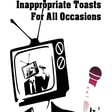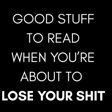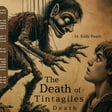Become a Creator today!Start creating today - Share your story with the world!
Start for free
00:00:00
00:00:01

Maintaining Sobriety During a Fascist Takeover of America
We know people are struggling with their sobriety and mental health. This week, guests Chris, Matt, and Denise (all sober folk with stories to tell and expertise to share) all discuss what works, what doesn't, and how the heck people are supposed to hold themselves together when their own government wants to tear us apart.
A full transcript of this episode can be found here.
Substance Abuse and Mental Health Helpline
Transcript
Introduction and Themes
00:00:02
Speaker
You are listening to The Mentally Oddcast, where we talk with creatives about neurodivergence, trauma, addiction, and all the other things that impact and inform our art. Our goal is to show everyone that no matter what you're going through, you are not alone and you can make art about it.
00:00:34
Speaker
You are listening to The Mentally Oddcast.
Focus on Vulnerable Populations
00:00:36
Speaker
My name is Wednesday, Leave Friday. Thanks for being here. ah We're actually doing something a little different right now on the show. um Because of everything that's happening in the world, we're going to do a series of episodes that focuses on vulnerable populations, ah things that you might need to know, things that might be helpful, and just generally reminding you that you have people out here that are going through what you're going through and people are there for you.
Sobriety Challenges and Personal Stories
00:01:07
Speaker
Okay, so we're actually going to start with sobriety because anecdotally, I've spoken with many people that are having difficulty maintaining their sobriety.
00:01:18
Speaker
um I am not an alcoholic, but I've certainly been drinking more in the last few months than I have in the last 15 years. So I'm a little concerned about that, frankly. um Our guests are um some some people that know what they're talking about in this arena. um We're just going to use first names, I think. um So we'll start with Chris. Hello.
00:01:47
Speaker
My name's Chris.
Chris's Sobriety Journey
00:01:48
Speaker
I've been sober since approximately September 15th, 2009.
00:01:56
Speaker
And, you know, like many of us, what I thought was gonna be a time for celebration is instead a time for deep mourning and reflection. And handling your emotions in sobriety is Well, can it's it's the whole deal, really. And hopefully my experience can assist people in finding a place within themselves that is able to deal with the world around them without resorting to hurting themselves. Because nobody likes to hurt themselves. We all deserve kindness.
00:02:41
Speaker
from ourselves as much as from everyone else. And hopefully I can help promote that. That's why I'm here. Thanks for having me. Oh, that is wonderful. Thank you so much.
Understanding Relapse
00:02:51
Speaker
I think you actually hit on something interesting because when we talk about hurting ourselves.
00:02:57
Speaker
I was actually thinking about the connection between like a relapse essentially being like a passive suicide attempt, you know, because when you know that something is bad for you and you choose to do it anyway, despite that, I mean, it's, it's such a, I mean, it's like an act of, of self loathing and then you chastise yourself for it. Like it's a weakness, but oh, I don't want to go off on a whole thing. I want to make sure everybody gets to introduced Denise.
Denise's Turning Point
00:03:27
Speaker
Hello, I'm Denise. I've been sober since May 16th, 2021. I just hit three and a half years past 17th. And basically what happened, I mean, I had been drinking for a few decades and I honestly didn't even start drinking daily and heavily until I got a DUI. And they told me that I was going to be drug tested. So that meant no more smoking. So once I got rid of that and restricted license,
00:03:55
Speaker
Basically, I had everybody driving me everywhere and I was getting drunk everywhere I went. um That was in my 20s, you know, fast forward to now or to 2021. And I went and met with a group of friends in Georgetown for a boozy brunch, you know, a bunch of mimosas, a bunch of girls I grew up with and my sister were there. It's 45 minutes from my house. um When I left, everybody kept asking me, are you okay to drive? Because i'm I'm actually from that area, from Arlington.
00:04:21
Speaker
Um, I was like, no, I'm okay. I'm okay. So I drive and halfway down there, I, you know, I had to go to the bathroom. So I stopped at a bar and right into the restroom and ended up at the bar on my way out. Um, I had quite a few more mimosas. I wouldn't be able to tell you how many I get home. The next day I walk out to the car with my husband and he says, what the fuck happened? And I was like, what are you talking about? And I go to the passenger side of the car and the whole right side of my car over the tires, like all messed up.
00:04:51
Speaker
And there was a flat tire, like I don't even know how the car ran. um And it all came back to me like it was a dream. I think I hit a barrier and people came up to me, asked me if I was okay. I said, I was, got in the car and then drove an additional 30 minutes home. I have no recollection of how I got home or any of it. And I just looked at my husband and it was like time stood still and I said, I'm going to quit drinking. And he was like, I think that's a good idea.
00:05:19
Speaker
And that's how I got sober. And we're a blended family. And my daughter, I have sole custody of her. And at the time, the first thing that flashed in my head was, what court cases is she going to have to deal with if I'm no longer around?
00:05:34
Speaker
And that scared the fuck out of me, because I am unmarried. And he's been in her life since she was three. And I wouldn't, yeah, that was my rock bottom. Everybody has their rock bottom, and that was mine. Because Lord knows I had a lot more.
00:05:50
Speaker
signs to stop before that day, but that day was what hit me. It made me stop. Wow. Yeah. Matt, what do you have to
Matt's Experience and Sobriety Shift
00:06:00
Speaker
tell us? Oh, hey, how's it going? My name is Matt. I'm a writer, musician, and grateful recovering alcoholic. I've been in recovery a little over five years.
00:06:13
Speaker
um My rock bottom was was kind of a little bit more intense in just the sense of I didn't quit drinking until I had to go to the hospital to stop drinking. So I had two instances of alcohol withdrawal, seizures within a year. The first one happened to me while I was at work, by the way, I was a bartender for upwards of like seven years. um Before that, I've always had jobs where I could drink, like since I was like 23, 24.
00:06:50
Speaker
um And it's always it's been a problem for a long time. But there came a point where I was sort of daring myself to keep going because nobody was was interfering. Nobody was intervening, I should say. And so it was like playing chicken. Like, how how much can I to do this while riding that thin line? And I was fortunate enough to to make it
00:07:22
Speaker
Both times. The second time though, I spent 11 days in the hospital and one day after the hospital, I was able to just relax and be with my partner at the time. And then the next day we drove down to Murfreesboro, Tennessee, and I went to rehab at Journey Pure at the river for about a month. and then So that was full inpatient? That was full inpatient, yeah.
00:07:52
Speaker
And this is 2019, so ah six months into my recovery, ah the COVID pandemic began. And I knew a lot of friends who who had some serious struggles during the you know that first six months to a year of the pandemic especially.
00:08:14
Speaker
For me, it wound up being a blessing in disguise because I ah managed to get a job at the right time that I was able to get unemployment. I was able to figure out what I wanted to do with my life, sort of, for the first time in a long time.
00:08:31
Speaker
was able to start my ah original career as a freelance writer and that, you know, positive things kept coming the longer I didn't drink. So it's been a ah pretty steady,
00:08:45
Speaker
um it's been a, I've had a a nice streak of doing the right thing leading to positive outcomes. And that has all kind of led me into reluctant optimism in the face of guaranteed terror. That makes sense.
00:09:07
Speaker
Yeah. Well, I think optimism is probably something that we should discuss first because there seems to be this pull right now. I appreciate the need for optimism. That's the thing that that keeps us alive. I mean, it's the basis of hope, but at the same time, man, America as a democracy is behind us and the people that are about to be in charge are bad. I mean,
00:09:34
Speaker
I don't want to go on and on about this, but like, how do you retain ah any sort of baseline of of optimism in the face of knowing that your government hates you? You know, I think that the first and most important thing to do, it's just like when you are struggling with addiction. You know, the first step is admitting that you have a problem.
00:10:02
Speaker
So we we see now, ah you know we have this sort of collective crystal ball of what could happen now that we know that democracy is on its you know ah it's fast decline. And because of the fact that we can expect the worst or prepare for some of the worst,
00:10:30
Speaker
It's, you know, we've got a couple months where people have already leading into the this sort of limbo time where once everyone can process the grief and go through the stages, it's like, okay, now we know some of what we're up against.
00:10:50
Speaker
We got to get ready. We have to prepare. We have to, uh, we have to find some glimmer of hope, but we can't do it if we're all individually struggling with taking care of o ourselves. So i mean in order to have any sort of optimism, that we have to just be willing to take care of ourselves before we take care of each other. Uh, pointing out that hurting yourself is never going to be a solution for dealing with fear or anxiety or any of the emotions that following the news can generate in a person that you know obliterating your consciousness through your drug of choice is not a viable coping mechanism. I mean, I can share what what's been helpful
Art and Community in Sobriety
00:11:47
Speaker
for me um as far as that. and one
00:11:50
Speaker
is gratitude. I mean, gratitude first and foremost for my sobriety each and every day because when the results came out, yeah, I was heartbroken. You know, yes, I did cry. And one of the things that hit me though was four years ago and eight years ago, I was so wasted during the entire time that I was posting and commenting some vicious things at people. And some of the things, you know,
00:12:19
Speaker
Some of the people were outlandish and things that they said, yes, but I didn't need to be part of the drama. And this time when the results came, I just thanked myself for how far I've come and doing this sober and just working on myself every day because that's the only thing that's really saved me and gotten me through this is the meditating, the journaling, and just being grateful that I got sober to the MS.
00:12:45
Speaker
Well, we're all ah trapped in our head with ourselves. So I think learning to love yourself or at least put up with yourself is often a key part of recovery. No, I think I think that's absolutely true. Well, because I mean, I know you pretty well. And I think that one of the things that we share is that we say things to ourselves that we would never think of saying to another human being because it would be too cruel and too heartless and too, you know, ungenerous. and And I mean, I know where my mean voice in the back of my head comes from, but well, yours too, I suppose. But I think that, yeah I mean, the the question is how how do you get there? How do you
00:13:35
Speaker
How do you shut that voice up like because the the worst thing for me is to think that maybe that voice is right. Thanks. practice It's like Denise says that there are there are strategies, you know, sometimes it's just.
00:13:52
Speaker
putting something in front of yourself. Like a occasionally we've in my house said we're all gonna make a little bit of art whether that's doing mosaics or paintings or my partner's taking up the fused beads crafting the sort of pixel art.
00:14:14
Speaker
oh neat ah You know, it's, it's just something to so you don't have to think about politics for an hour to the library I work at often has, you know, crafting days and
00:14:30
Speaker
What else? will Well, and it isn't even so much about, I mean, they're crafting is one of those things that is joyful in and of itself, but it's also productive in that you've created something like something exists now they that didn't. yeah Yes. And I mean, it's the kind of thing that like, once you have it, you can enjoy it visually, you can give it as a gift, you can make functional art items. And like, even beyond that, things like music and and writing and all of the things that we do as an emotional release are so important when you are trying to keep your mental health square. And when you're trying to stay sober, when you really don't. A huge one is connecting. There's a lot of you processing.
00:15:14
Speaker
the The important thing when making art is that the right time is now and the right tools are the ones you have in front of you. Don't wait for the perfect moment. so you know Every day is the perfect moment because the alternative is usually using drugs. I think a big big yeah thing that helped me was just community, connection. Because they always say that you know the opposite of addiction is connection. And it's true because I would drink at home by myself and I wouldn't really say yes to invites ever. Like I was just, told you know, at home every night. And once I found, like I did the online community at first and then once, um, I guess it was like almost a year ago or no, a little over a year ago, I went into on Facebook and typed in Maryland sober girls and found this huge community in Maryland. And then because it was like based on the other side of Maryland,
00:16:07
Speaker
I posted in our own local group here in Frederick and all of a sudden we had so many people, so many women join that they had to create a subgroup. And now these ladies, I meet with them every week for coffee and having somebody who knows what it's like to be sober, who celebrates the milestones with you, who, cause you know, people that live with me, my husband, they don't get it. And they, you can't really make them get it, but these ladies, they help me.
00:16:37
Speaker
have a unique connection to people who've also been through the struggle. We would have never been friends you know outside of sobriety. And you see us now, and you're like, I would have never imagined they'd be friends. And it's great. I think that.
00:16:54
Speaker
I think that the word that ties together what both Chris and Denise were saying is humanity. you know Arts, crafts, music, all all types of art, you know it's the humanities. nay And it encompasses what keeps us from being animals. And you know clearly, we're in a time where there's too much animal
00:17:25
Speaker
Too much of an animal response from every side of discourse and every side of American life where you don't know what other people are going through. People who aren't in recovery don't know what we are going through. People who are in active addiction, you know,
00:17:47
Speaker
nobody knows what they're going through. And the only way to kind of process all of that is to harness our humanity, you know, forging communities, like Denise said, and processing. You know, I use music, I use poetry to process my emotions and my thoughts, and also I do it more for myself than I do for other people. Of course, I like to share when I create something, but the process of retaining humanity through creation is really the first thing that I grasped for after giving myself a few days to wallow, I guess. Well, but when you have something ah major happen to you like that in your life,
00:18:41
Speaker
the first thing I mean I guess some people are conditioned to keep things to themselves but most of the people that I know are fairly expressive so they are looking for some sort of artistic way to express the the unexpressible because I mean how do you really put into words what that feels like when you stop your life and take a self evaluation and realize something huge needs to change. And then you start making those changes. So suddenly everything is different. I mean, it's such a, getting sober can be such an enormous. Well, as you end up with so much time on that, you know, and you don't, I didn't realize it. Yeah. sounds great You have to fill it with something. Yeah. And I was like, all the times I was thinking about going to the beer store, what kinds of beer store clothes will that event have alcohol?
00:19:34
Speaker
Anytime I had those thoughts, I was taking up time in my mind. So now it's like, I get to explore things that I find joy on. And I think that was a huge thing that I love to share with people because you don't get it until you get it. You know, like you can find, you will have so much time on your hands that you will have time for self-love and to do things that make you happy.
00:19:56
Speaker
I was on the phone with my brother last week, maybe, and his observation was that he he was just as traumatized as the rest of us recently.
Community Support and Connection
00:20:08
Speaker
And he valued the ability we have as brothers to to sit in discomfort. And I i felt like that was an important observation, especially for addicts. You have to get comfortable with
00:20:26
Speaker
Discomfort. Having a feeling that comes, arrives, stays with you, and and then will disappear. you know You don't have to do anything about it. You don't have to solve a problem. There's not always an active thing. Because we all want to reach out and say, I know how to solve your problem for you. You just need to do this or that or the other thing.
00:20:50
Speaker
and Sometimes you just have to sit with feelings that don't feel so great until they're over. And I found it's hard as an addicted person. That was a hard hard skill to develop. I took naps. Well, especially I found I realized i will from home well i was fired 10 days, unrelated 10 days after I got sober, I was fired. um So I had a lot of time on my hands. And I realized very quickly that I also turned when I was born.
00:21:20
Speaker
So whenever I started getting that feeling, I would head to the bed and take her down. I was napping a lot. Yep. But it was better than the alternative. I probably use sleep as a coping mechanism more than I should still. Yes. It's a good one. I mean, kind of. Never never killed anyone while I was asleep. Right. Exactly.
00:21:42
Speaker
Nothing, you know. So let's get into that a little bit. Let's talk about the things that you can do when you are alone, because you're always, I mean, everybody ends up by themselves for some time, regardless of how ah social you want to be.
New Routines and Sober Joy
00:22:00
Speaker
especially people that like don't work or whatever, but let's get into ways to maintain your sobriety and fill your time when you're home alone because like personally I am all about consuming media. I read, I watch things at movies, I i stream shows, um but I also have to be kind of careful because I tend to be very emotionally impacted by the kind of media that I'm consuming. And that summer I was really depressed and watched Joker every day. Not a great move. no Not the best way to to deal with those feelings. So what do you guys do? Give give me all your tips. I mean, I work out daily. I was already kind of like somebody who worked out. um I also found joy and
00:22:51
Speaker
different routines, like, you know, usually a Friday, I know Friday would mean go and get it like a bottle of Django home and watch TV all night, right? And basically black out while watching TV. um Instead of doing that but for a good year, I came up with a routine of sparkling water with fruit and playing Candy Crush while catching up on my law and order episodes from the night before. And that became such a routine that I looked so forward to.
00:23:17
Speaker
And the feeling of waking up the next morning at 6 AM feeling refreshed for my meditation, it was worth it. And after, I mean, it took me 90 days to actually realize I never wanted to go back. But once I hit that 90 days, man, it was like something clicked. I was like, yeah, this is, this is definitely the only way to live.
00:23:39
Speaker
Acknowledging progress is vital. You know, I have a number of little sort of anniversary days spread throughout the year that keep me going, you know, give me a little. But definitely.
00:23:57
Speaker
I get anxious when I look at the news, too. So especially during the pandemic, I think it's shifted my entire entertainment strategy. I need kind of light and fluffy things. I don't watch the wrenching psychological dramas as much anymore. I can say I have stayed away from news. Yeah, I know that feeling. And it has been the best thing in my life, in my mindset. Yeah. Can't deny that.
00:24:25
Speaker
ah I've actually been avoiding news in a way that i I hadn't before. I mean, before the election, it seemed really important to know what was going on because we were trying to make something happen. But now that we haven't prevented the bad thing from happening and it happened, I can't get into the whole like, Oh no, he nominated this terrible person and that terrible person. Like, yes, he's, it's all terrible. I don't, I don't.
00:24:53
Speaker
need the blow by blow in the news anymore. Cause there's, there's nothing to be done about it. I pull out the dead tree books and try to lose myself in the printed word. I spent too much time tear staring at screens. Otherwise I feel it's so important to protect your bubble in your world. yeah And, um, and I think it's super, super crucial and it's already a lot.
00:25:21
Speaker
the first principle being taking good care of yourself. I agree. Denise. I mean, I, I used for Brian so many times to get out of events. I'm like, or one time I went to my mom's and my sister was there and she triggered me and I got up and I said, I took my mom aside and I said, I'm sorry, I got to go. Um, I feel kind of triggered right now and I'd only been there 10 minutes and we left and I didn't feel bad about it because my severity is number one and it affects everybody around me, whether they like it or not.
00:25:52
Speaker
So can't pour from an empty cup. Right. And if you want me, you know, it's like my, it's going to affect you either way. If I drink or if I don't drink, but you have to respect the boundaries. So, and my sister was not very respectful of the boundaries that day. So I said, okay, well, I'll just leave them. And I did. When a lot of people get sober.
00:26:12
Speaker
You have to kind of get a new friend group. And sometimes you do have to amend or, or set very clear boundaries with family members. Cause I know my, my family, my extended family, who they drink every celebration, beer after beer, after beer, after beer. Like that was the whole thing. And if I was in a situation where I wanted to not be around people that were drinking beer, there'd be no telling them to not drink.
00:26:41
Speaker
You know, i I will not be able to be there because they're not going to curtail their drinking because one person wants it. so help but i mean My family doesn't drink. My mom and my sister, it was just the two of us growing up, but the three of us, they don't drink. They don't drink at all. So it was like one of those things where, yeah, it didn't really faze me. It was my mother and mom, my mother and mother. I think every once in a while she'll still ask me, are you still not drinking?
Societal Pressure and Supportive Environments
00:27:09
Speaker
Wow. The nice thing about a glass of ginger ale or a plain soda water is that no one can really tell it's not alcohol unless they go sniffing in your glass. So you can ask bartenders for a bartender like a mocktail and a bar glass, you know, because I've had many people as a bartender for six years way back when. And we searched pretty hard for the Shirley Temple 7 up recently. I wanted to try that out. Yeah.
00:27:40
Speaker
It's interesting because you wouldn't think that adults would want to be even concerned with that. because I think of that as like a peer pressure thing. Like, oh, you're not drinking? Like people getting in your face about whether or not you drink, but particularly people who drink and they're drinking is kind of questionable. So they're threatened by people that got sober. yeah Man, do people want to make that their business. so It's also something that for certain communities and certain ah generations, I guess, where it's just the the automatic, the default is, oh yeah, we drink.
00:28:15
Speaker
Like for me, throughout my 20s, I drank. I went to the bar. That's where my friends were. That's what what we did. And my hobbies now are sitting at home, playing music, watching YouTube videos and spending time with my dog and being mostly comfortable being by myself, but then also having sort of an idea of how to handle myself if I'm gonna meet up with some friends for some beverages. I know at least here in Chicago where I, in the neighborhood I live in, every single place has at least NA beers, mocktails, and different options. For me, if i if nothing else, I'll have a soda water and I'm good. If anyone, yeah nobody, didnt did i I guess that's the other thing is
00:29:10
Speaker
when I do see these friends they kind of know that I don't drink now compared to you know the time where I was just always drunk and it's just that it's like you had to kind of be comfortable with yourself when you're around people
Self-Love and Independence
00:29:29
Speaker
and yeah like Denise said you just have to have you don't have to but it's helpful to have a compulsion to leave if you need to. For me, oh, well, you know, I got to get back to my dog. My dog needs me. And, you know, really, it's, nah, I need my dog. we We have a nice codependent relationship going on. and You do really get addicted to being home by yourself. I will tell you that once you start that self-love journey you of not waking up, eating yourself every day, once you stop that whole cycle, the self-love is just unbelievable.
00:30:05
Speaker
You know, if you do the work, you know, I didn't, I'm not somebody who went to AA. I have many friends who are very, you know, active in AA, nothing against it, but I just knew that. I knew it wasn't for me because I, I used to drive my friends there in high school when they were court ordered to go. So I had been to many AA meetings and I knew it just wasn't, I'm an empath and I would just take, I would be worse when I left because I would take everybody's stories on with me. And when I got sober this time, I was like, I know that's not the way. So I got sober via.
00:30:36
Speaker
self-love and working on myself and the root of the problem. I think there are a lot of reasons why traditional AA and NA don't work for people, women in particular actually.
00:30:53
Speaker
Well, when i when I went through, I was a dual diagnosis person basically because I was in a state funded program and they weren't allowed to say, you may use marijuana medicinally. It was all sober all the time, like not even Nyquil. And I mean, that's a philosophy that works for people, but that wasn't what I was looking for. I am perfectly comfortable being a person who smokes weed every day.
00:31:17
Speaker
yeah but But I don't want to drink too much because that messes with my productivity and my health and, you know, a lot of things that I'm worried about. But I don't feel that way about weed.
00:31:29
Speaker
but in But I did go through some of those programs, and one of the things that they want people to say in them is that you are powerless. That's what gets me. I can't do that. I can't do that. Yeah, that that that did not work for me. And plus, you know, higher power is such a big jumble of everything, you know, I don't... They've made some strides, I think, to broaden their appeal, but at its base, the language and the terms were all developed in the 20s and the 30s, and I don't think yeah ah so but words are this society the same way to the message as it was delivered originally. I don't know, the language in those stories is a little on the
00:32:18
Speaker
uh archaic side i suppose yeah which which doesn't necessarily negate the infra like the big book has stuff in it as a framework it's pretty good i i took i don't know i and put my own spin on it personally go ahead matt i was just gonna say i can i can say the serenity prayer with or without saying god and it slaps either way so oh oh definitely The, you know, a lot of the slogans, a lot of the slogans in AA were very helpful one day at a time, that kind of stuff, but no, you,
00:32:57
Speaker
You shouldn't have to frame yourself as powerless. It's a little too churchy for me in that regard. You have to enable yourself to have the power to get yourself through every day. And that's whether you're in recovery, active addiction in between and or just ah Someone who doesn't struggle with these things going through such a high level trauma as this election and this impending administration, it's, you know, you just have to empower yourself if you're going to get through trauma, I guess.
00:33:40
Speaker
I do. I wouldn't I when I coach my clients with the first interest of Brady, a huge portion of that is your words matter. The words you say to yourself, hundred speak out loud. And to say, I am powerless. I mean, that really triggers me. It does. Because it's like, No, I'm not powerless. Because anybody who was sober is f and powerful in my book. Like, I don't care. like So yeah, so where's the matter? I'm a huge advocate of that.
Alternatives to AA
00:34:09
Speaker
um So let's talk a little bit about what worked for you when you were getting sober and what continues to work now even when stress levels are high. um Chris, do you want to start? um I think in my personal journey for myself, there came a point where i reap I knew what I was looking for when I took a drink.
00:34:33
Speaker
i I identified what I thought I needed from alcohol, what it gave me, and how I always managed to overshoot the mark. But then I realized that there was... there's nothing in that well. that That the thing I wanted, no matter how many times I went back and picked up, I would never get what I wanted. And as long as I keep that in mind,
00:35:00
Speaker
I don't find myself tempted to use alcohol again. That I could walk to my cabinets right now and drink the vanilla extract. I probably wouldn't get what I wanted out of it. And, you know, I used to say, whatever problems you were trying to solve by taking a drink will still be there only you'll have a hangover.
00:35:25
Speaker
And yeah you're going to have to deal with them anyway. And one of the pieces of architecture I took from AA was ah once I have moved every lever I can reach, once I've done everything that's in my power to change a situation, whether that's making a phone call or paying a bill or ah answering a social call, once there's nothing left to do,
00:35:55
Speaker
I can't beat myself up about it. You know you do everything there is to do and that's it. Then you forgive yourself, you do something you enjoy and you you move on with your life. you know Spending your life obsessing about all the things, how it could go once you can't affect the situation anymore is not going to help anything.
00:36:21
Speaker
Was that a major shift for you? Like intellectually, emotionally? As a person with anxiety, having to learn to put some guardrails on my own brain to say, you know, we've done everything there is to do. Take a deep breath. Forgive yourself.
00:36:40
Speaker
and do something you actually enjoy. you know Congratulations, you made the five phone calls that would have taken a normal person 15 minutes to do. Right, right. But yeah, up mainly the things I was seeking through drugs and alcohol I've managed to find through other outlets or deal with in ways that don't involve inching closer to death.
00:37:09
Speaker
Nice.
00:37:13
Speaker
That's something I continue to find helpful, even though like Matt, I established a routine of going pretty rigorously to meetings and being involved in the community. And then I moved to be with my partner 1500 miles just before the pandemic hit. So I could stand to stick my head up and see what the local recovery community is like, even though I don't consider myself in danger of relapse anytime soon.
00:37:41
Speaker
Interesting. So you haven't been going to meetings at all since you moved. I i didn't know that. I, you know, I, I had just about resolved to figure out what the local situation was like and then COVID hit. And so, ah you know, I moved in 2019. So I took the job I had in Michigan, picked it up in Washington. Did you do online meetings? I'm sorry. Did you do online meetings?
00:38:09
Speaker
I haven't, I haven't experimented with that yet. I was a little, I don't know. I mean. Well, that's great for you that you didn't have to, you know, it's, it's been so well. I've been, I did, I guess. Well, I, I actually didn't know until I was researching this episode that you can go to an NA or an N or an AA meeting online pretty much any time.
00:38:34
Speaker
Like they're literally always happening at some part of the world in a bajillion different languages. And that that is a resource. We'll have links in the description, but that is the kind of resource where even if you're not in a a regular in those programs, if you just show up and I'm like, I really don't want to drink today, but I also really do want to, somebody will help you because it's like an instant community of people who get it.
00:39:03
Speaker
It is. and I don't lament that I got sober in an analog age, but maybe I'm a little jealous of people who don't have to leave their sofa and can still go to a meeting. I had to get up and get in the car. yeah ye yeah I couldn't really get into doing online meetings, especially at the beginning of COVID when nobody really knew what they were doing.
00:39:32
Speaker
right And honestly, I probably went to my last meeting right around the beginning of the pandemic, but What worked for me was therapy. um First, I did a few years of therapy with my now ex-partner. We did couples therapy either every week, every other week, or every month. And just having that sort of forum with two other people who I trusted to for all of us to process.
00:40:03
Speaker
things together. We were actually in a couples therapy meeting when January 6 was going on. gee so So we're literally just processing the whole thing together, you know, including the therapist, but now I'm, I've had my own personal therapist for the last year and a half minus, or maybe two years, minus a spell where my insurance kind of, uh, didn't work out, but being in therapy helps immensely. The recovery community here where I live in Chicago, it was not really, uh, as open as I would have really appreciated, but
00:40:50
Speaker
I actually, I have a number of friends who have taken from my example and quit drinking within the last couple of years. And just having each other to check in on each other now and then is also crucial. You can do it with as little as one other person. All you gotta do is ask them, you know, I need a another pair of eyes on this situation.
00:41:18
Speaker
is Is what I'm thinking crazy or am I on the mark? you know And sometimes that's your sponsor, doesn't have to be, but you know we all have to look to one another for support, I think. Everybody can use a set of ears to listen when you're in pain. Yeah.
00:41:37
Speaker
Yeah, let's actually get into that a little bit. um Because yeah, if you have internet access and you can get to like a Zoom, you know, you you're tech savvy enough to do a Zoom meeting, that's awesome. But I mean, not everybody is. And I think it's, it's important that like some people, their family sucks. And maybe all of their friends are still using it. So they need all new friends.
00:42:08
Speaker
Um, I know that like at one point I got super depressed because I lost my job and I was just feeling like a big useless nothing. And I started volunteering. I went down to the the overnight shelter.
00:42:24
Speaker
and took the little training class and I was taking the, basically everybody else that was taking the class had been caught driving drunk and they were required to do community service and that's why they were there. So so yeah, so I bet all these grownups.
00:42:42
Speaker
You know it turns out you can do community service, even when you're not court mandated to do it. Yeah, you can just do it for like your own spiritual enrichment and for like the I don't know the better good of other people and humanity. ah Weird.
00:42:58
Speaker
Yeah. Wednesday and I have both worked retail for multiple decades, I'm assuming, but since I moved, I got a job as a librarian, and and that is some of the most fulfilling work I have ever done, you know? You get a little catch in your throat when you're signing someone who's six or seven years old up for their first library card. Aw. Aw.
00:43:25
Speaker
But definitely they have craft programs, they have game nights, you know, anything you can do to put it in front of yourself rather than- Or your local library. I mean, it's a free resource. Anyone is allowed to be there. It's one of the few places you can go where no one expects you to get money. You can get movies nowadays. Yep.
00:43:51
Speaker
Yep. Well, and like my library, they have little meeting rooms and you you can use their computers. Like I know people that only have a job now because they were able to go down to the library and use it to apply. So don't discount your local library as a source of community and entertainment and utility. I mean, yeah. Cause like Chris was saying, they're, they're libraries that teach all kinds of different things. Just drawing classes. I know when I was a kid, our local library had movies on Saturday.
00:44:21
Speaker
And it seemed like every month they would show that Bakshi version of the Hobbit. Then afterwards, there'd be some kind of craft or something that was like Hobbit related. But even if you don't like Hobbits, yeah, library. That's the thing. And volunteer work in general.
00:44:38
Speaker
I don't like to push church on people, but if you are looking for a network of people that are generally doing volunteer work, local churches are are down
Volunteering and Community Building
00:44:47
Speaker
with that. And they'll tell you that there are homebound people who could use some company. There are ah animal shelters that seriously need people to come in and cuddle the animals and spend time with them. Yeah, absolutely. you know So not only are those great things to do,
00:45:05
Speaker
but you will feel better. It will give you a sense of accomplishment every time you help someone. It's funny because like, and I don't suggest this for anybody else, but when I, when I quit drinking, I was actually, I had just started network i'm network marketing company. I'm not going to name the name, but looking back, yes, it was a cult. But while it was in it, I went to all of the events because I had the extra money because I was selling it. And on top of that, I wasn't spending it on alcohol.
00:45:33
Speaker
So I was going to these events, I got to see like Jay's Shuddy speak, you know, um Ed Mylett, like all of these people in person, I got to see speak online. And the people that I surrounded myself with, during those first two years of sobriety, were all positive minded, they're all journaling, they're all doing their daily meditations, we we're checking in with each other. And then when that world collapsed,
00:45:57
Speaker
It was like this huge eye opening thing that happened to me where all of the friends that I had known that helped me through early sobriety were gone. They weren't real friends at all. And it crushed me. And this was just last year. And that's when I, you know, found my local group and. You know, I can't say that enough that you have, it helps to have people who get it because what we do, not only do we meet up for coffee, but I've lived in Maryland for like 12 years. And the first time I ever went hiking during the fall, which I love was last year.
00:46:28
Speaker
because of these ladies. Depending on how long we all live, I think we all lose and rebuild our personal community a number of times. And especially oh yeah going from using to sobriety, that's sometimes many people's first big jump into losing one community and having to build another. I love it because they're they're some of them are local, so Frederick is a wonderful area and so we're doing new things together all the time. Like we did somatic yoga therapy together. We're looking into doing a rave room. you know yeah
00:47:01
Speaker
Well, that's a really important thing to note though is that there is a mindset among addicts and and even people with just mental health issues and then they start taking meds or whatever of like, okay, I did the thing. I got sober. I'm taking my medication. I'm doing all the right steps. Why do things still suck?
00:47:23
Speaker
You know, or why do I still have to go through hardship? And that's, that's a thing that can be, cause you know, the, like the pink cloud and everything, and you're just, you're feeling really good for a while, but then something happens and it can really knock you back because you get into this mindset of like, all right, from here on out, everything's going to be roses. And man, it's not, that's not how life works.
00:47:51
Speaker
And what I tell people all the time is like, it's not a one and done thing. It's a daily practice to love yourself. It takes like the first hour of my day is walking my dog, listening to a positive podcast, coming back and reading and then journaling and meditating. And that's like my world before I let anybody else in. And that's really important to me. And I feel like if more people did that, a lot more people would have patience.
00:48:20
Speaker
That's a pretty incredible way to start your day. yeah I know for me, the, the, the routine of having my sweet little dog need to get up, do her business, eat her food, and make sure that I, you know, move from the bed to the couch to start working. It's, it's good to have motivation that's external, but at the same time, internal motivation of like, okay, so We didn't get the desired outcome with whatever this is before me. What am I gonna do about it? Am I gonna do nothing about it? Is there something I can do about it? And once you kind of identify what you can do, what you can't do, it's the Serenity Prayer.
00:49:09
Speaker
you know ah Ideally, through recovery, you kind of regain the wisdom that you might have shed when you were sick and just covering all your problems with this like self-harm.
Joy, Art, and Resilience
00:49:27
Speaker
So it's, I'm sorry, I just lost my train of thought.
00:49:35
Speaker
I do that all the time. and that's just it There's nothing wrong with that. Like I still love myself. I still know that I don't have to be a perfect person. I don't have to be the pillar of my community if I'm a member of my community or if I'm trying to do the best that I can every day, that's got to be good enough. And no one is perfect, but definitely the the journey toward not hurting other people starts, or at least can start, with not hurting yourself. It should certainly yeah absolutely start that way. Take a deep breath, try and meet people where they are, and
00:50:19
Speaker
You know, um do what you can. mouth control show but Also don't, don't lose sight of what you love. If you, if you love your family, if you close with your family, then embrace your family, whether they're you know, if you can, of course, I, I have the misfortune of.
00:50:40
Speaker
being thousands of miles away from my family and so I have to kind of lean into my other relationships a little bit more but also I i know what I love and I know what makes me happy in the face of fear you know and that's music that's uh spending time reading a book sometimes it's reading things that make me uncomfortable reading things about you know how how we got to this terrible place in the first you know in the first place and you you don't want to lose sight that's i think my biggest takeaway for from the last two weeks is i can't lose sight of what makes me happy what makes me human and you're still allowed to love things definitely we still all start within knowledge and you know as long as we
00:51:37
Speaker
As long as we have the chance to find joy, we we have to. That joy is kind of an act of rebellion sometimes. Yeah, it has to feel good.
00:51:52
Speaker
That's not Brene Brown. I forget who said that, but the intention is to feel good. That's every decision that you make. Your intention is to feel good. Let's talk a little bit about things we want to avoid.
00:52:07
Speaker
Cause I know we mentioned avoiding news and, um, certainly avoiding toxic people and things that are triggering. Um, what, what else
Avoiding Triggers and Toxicity
00:52:17
Speaker
are you guys about? Like I'm spending way less time on the internet talking to people than I used to. Cause I can't fucking stand it. And I, I'm so angry at people who voted against our happiness and safety and now are like.
00:52:33
Speaker
What the economy, blah, like, bitch, I would have bought you some fucking eggs. Really? i I am a very online person, as they would say. And the most gratifying and satisfying thing that I've done for myself in a long time was to deactivate my Twitter and yeah to and to throw the app away.
00:52:58
Speaker
Um, and I, you know, I joined, I joined blue sky a little while ago, but that's been picking up a lot of momentum. And the thing about it is when I, when I go onto that app, I'm not really. Driven to be there for more than a few minutes at this point. There's not this constant sort of flood of shit that holds you in, in that grip of like, Oh, I gotta, I gotta see what else is going to make me mad. And so it's ah been a lot easier for me yet put my phone down, like pay attention to one thing at a time. I say to myself, instead of having an episode of TV and I'm on my phone fiddling around with, you know, trolls or something, uh, being able to
00:53:47
Speaker
put my phone like far away from me and know that if anyone needs me, they will call twice. Yeah. I'm making liberal use of my do not disturb setting these days and I am the better for it. Remember when people used to buy ringtones? You'd spend money so you could have a cool ringtone and now it's like, oh my God, my phone made a noise. What the hell is happening? Yep. That's so funny.
00:54:14
Speaker
When I first got so, like the first day, my husband was like, you know, no alcohol in the house anymore. And he was very supportive of the whole thing. Um, and even, I think, uh, one of the kids had a birthday. It must've been, yeah. So it was my daughter's was in July. Um, shortly after I got sober and he told everybody no alcohol. Cause of course we would usually have alcohol because of my in-laws and somebody showed up with alcohol and he said, Nope, put it back in the car. And I think they ended up leaving because they got annoyed about it. But.
00:54:45
Speaker
That's one thing to really avoid, you know, no alcohol in your house. And hopefully you live with somebody who's supportive of your decision. It got to the point where I think my husband had like maybe two hangovers since I've been sober and he's the type of guy who can drink one and stop. But both times I felt kind of self-righteous in my own way. Um, but he doesn't drink anymore. So he realized, yeah, this is not, you know, not that I have a problem. He just hasn't had a drink in life.
00:55:13
Speaker
I made one drink in the last year, but I've said no to many invitations in early sobriety. If you feel like you're going to get triggered, like I had an invitation for a friend who had her birthday party that November. So like six months later, and it was at a bar and it was on a cruise. All you can drink.
00:55:32
Speaker
Oh, wow. Yeah, there's no way I can attend that. And she was like, you know, and it was like, expensive. And I'm like, well, I'm sure that's for the alcohol, right? And I was like, yeah Yeah, I don't trust myself just yet. And some friends will get it. Some friends may not. And some invites may get just lost in the you know, in the process, because some people may not even know how to deal with your sobriety. And that was a hard pill to swallow.
00:55:57
Speaker
like Well, and when you have friends that are also using a lot, people do get very threatened by someone saying, well, how could you have a drinking
Friends' Reactions to Sobriety
00:56:07
Speaker
problem? We drink the same amount. Well, especially when I was usually the last one standing and here I am quitting. I think that was people, a lot of people were like WTF. My, my hospitalization was a wake up call to more than one of my friends because they were like, well, wait a minute.
00:56:25
Speaker
I drink just as much as he does. what There's nothing wrong with me. That was actually something that I went through before I got sober too, was one of the one of the people I've played music with for 20 plus years. He got sicker than me but before I did. He was in the hospital for like three months, definitely almost died. And the whole time I was like, well, I am definitely on my way to that.
00:56:53
Speaker
i am ah i in one part of my head, I said, that's where you're headed. And the other part of me is like, but I'm not there yet. So yeah let's ride the wave. But- How much can you take? it's It's become easier for a lot of my friends to stop drinking when they frame it instead of as like, I am quitting this bad habit. It's just like, the there's so many other things that you could do besides drink. You could literally,
00:57:24
Speaker
just drink water and- I like to ask people, how does it benefit your life? Exactly. It feels good for exactly two drinks and then it's awful. And then it's awful goes for the next 12 hours until yeah, until you can get your next fix. And it's sometimes it can be, you know, and an impossible thing to not do something.
00:57:54
Speaker
But eventually, it's a lot easier to not do something than you might realize. um I want to get into a little bit about how to tell when you might need some help with your drinking. And I want to frame it in terms of like, well, with depression, you know, like clinical depression, there is often a question of Well, are you clinically depressed or are you reacting appropriately to the world in which you live or to what your life situation is or because you're ingesting a depression?
Recognizing Problematic Drinking
00:58:32
Speaker
Mm-hmm. But I mean, yeah, you know, because I, uh,
00:58:36
Speaker
Like it's it's reasonable when you find out that your country has been handed over to rapists and fascists to say, I think I would like a drink. I would like to relax and have this drink and see if I can calm down a little bit. Like that's not unreasonable. But I like to tell people that you know that's not really technically relaxing and there are other ways to help with the stress that's not gonna make you feel like shit tomorrow.
00:59:06
Speaker
So how do you know when you're drinking is is problematic? Like I know that there are like, you know, if you, if you look online, there's a list of things, you know, are you missing work? Are you acting like an asshole? See, that's what I would say. If you're questioning it, then um um yeah if you yeah you might have a problem. You probably do. Exactly.
00:59:31
Speaker
You know, because I, you know, I've done it all. I tried to quit millions of times. I tried to, I'm only drinking on weekends. I'm only drinking when we go out to dinner. I'm only doing this. I'm like, it none of it works because the alcohol is still in your system. It takes at least three weeks for your body to start functioning properly after alcohol. Three freaking weeks, your gut starts becoming better. Like think what that does to your body and physically and mentally. It makes you feel like crap.
01:00:01
Speaker
So let's say I'm a person, if I'm, if if I'm questioning whether or not I have, uh, I'm drinking inappropriately, or if I'm on the the verge of an alcohol problem, what is my first step? what What do I do about that? Chris, what did you do? Um, well, uh, someone close to me suggested I enter treatment and after some number of months feel immiserable, I agreed to try it out. And I don't recall if it was dual diagnosis like yours. It may have been, but yeah, there, um I guess I was already somewhat experienced with therapy, but, you know, there
Seeking Help for Drinking Problems
01:00:57
Speaker
at the time they were big on
01:01:00
Speaker
they wanted to just start going to meetings. And there are always, I think people there, you have to sign the little sheet for, because they have to prove to the court that they went to a meeting. But yeah um that's what I did was,
01:01:23
Speaker
tried as hard as I could to find my community, the people who were going to care the same way I did or look at the program the same way I did. But to find people I didn't mind spilling my guts to and his advice seemed to ring a little bit true.
01:01:43
Speaker
and it Like I have mentioned before, I think it all it boils down to finding myself another pair of eyes on situations where I was unsure whether what I was doing, whether that's a doctor or a professional ah mental health. Just get someone else's opinion, someone you trust, not someone who's going to manipulate you or abuse you, but ideally,
01:02:14
Speaker
someone with your best interest in mind and say, Hey, do you think I need to adjust what I'm doing and think about their advice? I don't know how else to frame it other than that. Yeah, that, uh, that's, that's good advice. I mean, I'm, I'm really fortunate because I live with someone who sees me exactly as I am and yet still likes me for some reason.
01:02:42
Speaker
Um, but I always, you know, I could say, Hey man, have I seen manic to you or have I seemed, you know, whenever I can't get a clear picture of myself, I live with someone who can give that right back to me. And I realized that lots and lots of people don't have that, but it is so important to have at least one person that you trust.
01:03:07
Speaker
who can objectively observe and and tell you what they're seeing. And it it doesn't even necessarily mean that they're going to be completely right because nobody knows a hundred percent of what goes on inside your mind.
Finding Support Groups
01:03:21
Speaker
But just having a small community of people who see you the way that that you really are and that know you and understand you, that's huge. That is huge. So so what happens if you don't have that?
01:03:37
Speaker
I think that's when you have to reach out to SAMHSA, honestly. That can get really lonely. It can. um
01:03:50
Speaker
i just i mean Honestly, that I didn't realize until I got sober how huge the online community is, especially Instagram. like You can go to Instagram and put in the search for our sober, and all of these people will show up with great advice. great and they all like all follow each other. It's like this huge big like world that I had no idea. And like I said, like Facebook is a a wonderful resource too. There's a lot of Facebook online groups that do, they actually do like meetings online on Facebook, like Facebook live type thing. Um, and that was helpful. But if you want to find local people, if you want somebody to like, you know, talk to,
01:04:32
Speaker
I mean, like I said, when I did the, when I was trying to find local friends around here, cause I knew nobody in Maryland yet. It was, I did, you know, sober girls in Maryland. And that's how I found people and having them even online until we actually met was great because we all have social anxiety. We were all addicts. And it's just so funny when a new person comes, it takes them like an hour too late because they're hesitating on kind.
01:04:59
Speaker
But it's like, it's just our friendships are just so much more genuine, because everybody's listening. You know, like, it's not that push and pull of, you know, um are you going to remember the story that I'm telling you today, tomorrow, like, and there's some comfort in that as well. But I suggest like going to Facebook and actually like searching like sober groups in your area, or even just the online generalized ones to see if you can Find the the meetings if you'd like to get online. Nice. but Yeah, that's great advice. and am i Anything else, guys?
01:05:39
Speaker
OK, cool. Cool. Well, you know what? I want to talk some more about media because I like doing that. And I want to hear from you guys. What are the things that you watch or read or listen to?
01:05:53
Speaker
to get you through your toughest moments, things that put you in the mood that you want to be in. Well, I love the book, You Are a Badass by Jen Centiero. I highly suggest you get it on Audible because her voice and her comedy is just freaking, and I've been found like laughing like during my walk, laughing my ass off because of her, her ways of putting things, but it's a good self-confidence book and makes you feel like you just feel empowered.
01:06:22
Speaker
And you really need that type of positivity input when you're sober. And that's the type of media that I try to soak in when I'm really down about myself. She always puts me in a better mood, that book. Cool. Cool. I love that. du what What do you watch? Do you got a particular? watch like like serial killer dramas, but they're talking about you know, I was sitting here like, I seriously I'm like, you know what, she strikes me as a Dexter type. I wonder if she's Oh, yes. Love me some Dexter. Yes. Well, it's it it can be very comforting to stream like the same shows as a lot. Because you know what's gonna happen. So you're not going to get sideswiped even if there's a character death or something. You know, because you've seen it before it's coming up.
01:07:14
Speaker
Um, but, uh, I actually, we watch diehard and that's, I'm not really an action movie fan, but I was really in the mood to watch a very bad person get severely consequences. I really wanted just to watch a villain get what was coming to them.
01:07:33
Speaker
And it's so cathartic. It is. And the thing is that that movie is about a scrappy guy who just got thrown into circumstances that he was in no way prepared for. And, you know, like like Finn and that one Star Wars movie, he's just like, well, I guess this is what we're doing now. And yeah and it all works out. And, you know, Bonnie Bedelia is like, oh, yeah, he's not so bad. So.
01:08:03
Speaker
Yeah. Yeah. ah yeah I mean, you know, Bruce, I mean, I'm always down for a good shit freak though. You know, I've watched that from beginning to end like at least 10 times. Um, that's my comfort show for the, if I need background noise or whatever, there was this actually, actually there was um a series, I forget the girl Penny from big bank theory was in it. And I think it was like flight agenda.
01:08:30
Speaker
but it was a series about her drinking. And if you're early in sobriety, you may get triggered, but it did the perfect depiction of somebody who suffers from alcohol. I'm glad that you brought that up Denise, because that's actually, that's been kind of a weird thing for me in my recovery is that show was incredible. The movie, the girl on the train, same thing. Emily Blunt struggling with fall down blackout drunk.
01:09:01
Speaker
Watching episodes of you know intervention has been very cathartic for me, watching other people go through the same things. Cause it's, it kind of gives you a space of empathy while being far enough separated from it. It's like almost like a good reminder too of like, Hey look, other people can fall down this same terrible rabbit hole.
01:09:29
Speaker
And now that you are reminded of that, what are you gonna do? I'm gonna not drink. But I also, you know, I like to to binge on horror sometimes and the, you know, deep philosophy on YouTube to just keep my brain active and then fail videos, you know? watchs Watch idiots do idiot things and Well, you know what time of year it is, kids. Yes. Speaking of fails, but this is the time of year that people set their back guards on fire trying to deep fry a turkey. And that is my Black Friday tradition is watching those videos. Oh, my God. That's incredible. There's a book that that really helped me feel seen as far as the whole drinking was. It was a book called I'm Just Happy to Be Here. And it's a book about
01:10:27
Speaker
it's called it's like a book on met renegade mothering is what it basically says. And it's about this mother's turmoil of trying to quit drinking, but she gets so vulnerable in this book and admits to shit that I would never admit to anybody else that I could relate to her about. But she like, you know, some like mentions of like her coke days and things that she did and out at the clubs and stuff like that. And I'm like, I would never admit that anyone and but she makes me feel seen and holy shit. I didn't know anybody else did that. So it's like, it's called quit lit. You know, I highly suggest anybody in sobriety, especially early sobriety, you get a book and you let you read about somebody else's journey to help you get through it.
Relationships and Boundaries in Sobriety
01:11:11
Speaker
Nice. Nice. I also find that there are certain books that provide excellent coping mechanisms for
01:11:21
Speaker
some of the the and the like peripheral parts of sobriety like avoiding people or or dealing with family that are not supportive because um Harriet Lerner is is somebody that I read a lot.
01:11:33
Speaker
um Dance of anger, dance of intimacy, dance of connection. And she basically portrays relationships as a dance. And if you have a person that is doing something unacceptable and you tell them that and they don't change, they don't respect your boundaries or whatever, like you can't make a person change. But if you change the way that you respond to them, then the dance itself cannot continue as it was.
01:12:01
Speaker
Oh. And so i I find that really helpful, it's especially just in terms of like figuring out what's actually happening, like parsing what's going on in these different relationships. You know, like in families when people will be keeping secrets from each other and then it creates all these weird riffs and it's just, it's good in that way. And it was helpful to me. I actually got those books about two years before I went no contact with my family of origin. And it was probably another eight or nine years after that that I slowly got in touch with like my brother and my godmother, but not my other brother and just, you know, stuff like that. So certainly the kind of self help books that help manage the relationship issues that are going to crop up when you try to get sober or even attend to your mental health, because I know people
01:12:58
Speaker
who were totally black sheeped by their family because they decided to get counseling and and to understand some of the things that went on in their family and like, oh, you know what, this was actually abusive and this was totally dysfunctional.
01:13:12
Speaker
And then the you know you get that whole, oh, your therapist turned you against us or whatever. So it's it's always nice to have a book that helps you reframe things in a way that makes sense to you. So Harriet Lerner, that is who I recommend.
01:13:31
Speaker
I think it's also important to, ah if you're open to like non Abrahamic religious sort of spirituality, I found a lot of use in refuge recovery, which is kind of rooted in Buddhist thought and practice. And it gave me a nice new perspective as someone who ah grew up in a you know Christian fundamentalist environment and is no longer a part of any of that. So I think finding your own personal spirituality or whatever is very useful. And that's a book I recommend refuge recovery. Cool. Cool. Chris, you got a favorite.
01:14:19
Speaker
Um, as far as self help books go, that's not really my jam. I was, well, I mean, not even help self help per se, but like, I mean, something that, that helps you kind of reframe what you got going. Like you read the Ishmael books, the Daniel Quinn books. I haven't. I'll have to.
01:14:38
Speaker
but Really? Oh, my God. All right. I'm shocked. Well, no, because I'm I'm actually shocked because it was Ryan who like seriously nagged me until I read one of them. So I just assumed that he nagged you. too You know, I called one since I moved out here. But oh, no, really? Wow. Yeah. I don't know. He's he's got a whole family. I just got cats. Yeah, that's true. He does. um have that, that whole family going on now. Yeah. I'll catch you up on all that. There's dish. Yeah. Yeah. I love Glenn and Doyle. Um, we can do hard things and it's not necessarily a whole book on sobriety, but it does talk about how she got sober personally. And the way she got sober, you know, the whole process, I mean, she had to go through a divorce, found out that she, you know, as a lesbian and,
01:15:34
Speaker
had to explain that to her husband and her daughter. I mean, the whole book goes through it. But it really helps you understand how she had to deal with all the family members and all of the stuff that she was going through at the same time. um Again, it's called We Can Do Hard Things. And it's, I love Glennon Doyle. She's awesome. Cool. That was actually my ah mantra coming out of rehab was that I could do hard things. And I tell Any of my friends who need advice, that's the first thing I tell them is like, you can do hard things. Yep. You've done it before. Nice. You can do it again. So on the subject of reframing, I know that right now I am feeling
01:16:21
Speaker
a lot of anger at my fellow Americans.
Coping with Societal Stress
01:16:25
Speaker
um I'm very fearful about what is going to happen to us and a lot of people that we care about. I'm feeling pretty helpless about a lot of it. um So I imagine that these things are not unique to me. I imagine they're pretty much universal among decent people right now.
01:16:44
Speaker
So how do we use like the hope and the optimism that we talked about before to turn those into, I mean, those anger and and fear and helplessness, like they're basically encouragements to to drink and to to relapse and to not treat yourself as well as you should, because there are things that say, well, fuck it, why does it even matter?
01:17:11
Speaker
so let's talk about how you make it matter. I know we, we kind of talked about some peripheral things, but, but how do you reframe those kinds of emotions? I mean, you can't really control what's going on in the world. And that goes back to not being able to watch the news because I did take all of that in and it would cause me horrible anxiety. And it sucks that what is going on is happening, but it's not selfish to say,
01:17:41
Speaker
I can't do anything about it. And my, my peace of mind is more important.
01:17:51
Speaker
And it sucks. Like I know there's a lot and working out also health time again, you know, in therapy, obviously, but you know, it's just, you can't control it. You just can't, and it sucks. So surrendering is huge right now. We're not.
01:18:08
Speaker
the first society to have ever lived under quasi-authoritarian rule. We i don't know what will or won't happen in four years, but yeah a lot of the politicians I pay attention to are encouraging people to get involved at the local level if they can, if they're comfortable. Ron, for your library commissioners and your school boards, but ah even if you can't, I suppose, I think the impulse means to make things as kind and compassionate and understanding and welcoming as you can at whatever level you're able, whether that's your family or in your church group or just
01:19:02
Speaker
to the limit of your ability, make your local environment a peaceful and welcoming place while the rest of the world goes through whatever it's going to go through. And that's going to vary depending on what state you live on and ah how big your family is, or in my case, how spread across the country.
01:19:31
Speaker
you know i've got dream I forget who said it who said this quote but somebody told me one day and it just changed my perspective on a lot of things because as a you know Anxiety sufferers a lot of us are um Worry is a prayer for chaos and that's basically what anxiety is. It's you Praying for that chaos to happen because you can't stop thinking about it
01:19:56
Speaker
to the to the same extent as far as getting involved locally. I mean, that goes for your neighborhood, you know, get to know your neighbors. Make sure that you have some semblance of connection to the people who live physically closest to you. You know, I have, I have a lot of Spanish speaking neighbors and I've been taken, I've been like refreshing and rebuilding my ability to speak Spanish so that if nothing else in some sort of ah crisis, I can still try to do my best to help the people
01:20:38
Speaker
in my immediate vicinity. And even if you can't do something as ah rigorous as trying to learn a new language, just getting to know people and um building that trust between each other. Because you know it's ah a lot harder to ah to take out an entire block ah rather than you know individuals.
01:21:04
Speaker
so youre your family doesn't have to just be the people who are you know you're separated from. You can kind of build that community starting next door or in the apartment above or below. Absolutely. Yeah, yeah. Now, was there anything else that any of you wanted to cover? I think we we touched on a ah broad array of issues related to sobriety, but do we leave out anything important?
01:21:35
Speaker
I do want to add one thing because it's something that does trigger me. um and It may be triggering to people out there who are just starting their own sobriety. Sobriety is like your religion. It's personal to each person. Nobody can tell you you're doing it wrong. If you're bettering your life, that's really all that matters.
01:21:59
Speaker
and I say this because I, you know, in the past, like a while back, I didn't have a falling out because I was not considered, you know, quote unquote sober because I have a medical card, which I think is BS because that's basically what saved me. So I just want people to know out there that don't listen to the people who are telling you what, how to do your sobriety. Cause that is all you. That's only, you know, here, here. Yep.
01:22:25
Speaker
The only thing I think I would tack on to what we've covered to today would be that if you decide to try and you fail, you tried. And maybe you can learn something from the trying that will help you carry forward. ah Yeah, relapse is seems absolutely a part of recovery for everybody.
01:22:50
Speaker
at least oh yeah in my experience of recovery, the hardest thing a person could do was to come back to the table and say, I'm sorry, I used, please forgive me. And the amount of hand wringing and sobbing and just emotional devastation associated with trying and failing rather than with not trying at all always seemed to me to be a little right like, man,
01:23:20
Speaker
You know, they they tried, they failed, and they're back. That's amazing. We should be celebrating. And and not only that, they're going to serve again with more experience. and Yeah, and then the next time they start their sobriety again, they're not starting from scratch. they They're starting with experience. If the world is scary and you've decided that sobriety is something you want to reach for anyway, ah I myself couldn't be prouder of you. And I want you all to know that as much as that means. Right on. Yes. Yeah. The world sucks. Anything else? Any more final thoughts?
01:24:03
Speaker
Yeah, the world sucks. It doesn't mean you have to. Kindness goes a long way. Yeah, don't be a dick to yourself. There you go. Right. Right. OK. Well, kids, it is time for the Mad Lib. This is my favorite part of the show. And even though the shows we're doing now are much more serious in the interest of joy and laughter, we are still doing the Mad Libs. So does everybody know how this works? All right. I mean, I know how Mad Libs work.
01:24:33
Speaker
OK, cool. Good. Well, then we'll start with you. Give me an adjective. ah Blue. And Matt, another adjective. All right, then, Chris, give me an adjective. Sorry, I didn't realize my microphone was muted. I didn't know. Go ahead, Matt. my My adjective is sweet. All right, Chris, adjective. a Sharp.
01:25:04
Speaker
Denise, noun. Dog. Matt, noun. Clown. Chris, plural noun.
01:25:19
Speaker
Tarpets. All right. ah Denise, give me another adjective. Stunning.
01:25:32
Speaker
Matt, another adjective. Terrifying. Nice. Love it. Chris, a noun, please.
01:25:49
Speaker
You're all going to have nouns coming up, so think of some nouns. Shoot. Mount Tacoma. All right. um Denise, noun. Book.
01:26:02
Speaker
Okay, so we had person in room female, which I put as Denise, and there's another one. So I'm putting that as myself. And I am talking to the mad lib people about why these things are so goddamn binary. um Because come on, we we can do better than that now, I think. um Matt, part of the body. Foot. And Chris, a plural noun.
01:26:34
Speaker
Earwigs. All right, Denise, a noun. Car. Matt, a noun.
01:26:49
Speaker
ah Machete. Chris, an adjective. Spiny. And Denise, a noun. Dwarf.
01:27:04
Speaker
Dwarf? Yeah. All right, cool. So that's everything. So now I get to read it. This is called Midnight Movies. Looking for the perfect movie to watch at your sleepover? Try one of these blue party favorites. Sweet Girls. This film stars Denise as a homeschooled dog who goes to a sharp high school for the first time.
01:27:33
Speaker
Will she turn into a mean clown like the rest of the popular tar pits? Legally stunning. In this movie, a terrifying sorority Mount Tacoma follows her ex-boyfriend to an Ivy book school in an attempt to win back his foot.
01:27:56
Speaker
the The princess earwigs. When Wednesse Thermopolis discovers she is a car and an heir to the machete of a spiny country, her entire dwarf is turned upside down. Well, my goodness. I just love that. I can't help it. That's the only clue you're a car and the heir to a spiny country. I love it. See? We tell you what, those all sound better than sequels. Right? Right?
01:28:27
Speaker
um
01:28:30
Speaker
All right, well, I want to thank everybody for being here and sharing your experiences and your expertise. um I hope ah everybody got something out of that. um We are going to have links in the description um for some of the things that we mentioned, 24-hour Zoom meetings and the like.
01:28:50
Speaker
um We do have some more episodes coming up focusing on ah vulnerable populations. We're going to be talking about ah how to preserve your marriage. Should someone try to take it from you? um Some but talks about gun ownership for people who are not gun people and why maybe it's not the best idea to ah carry a loaded weapon in your purse all the time, even if you're scared and especially not. So we're going to be getting into some of that stuff. But again, thanks everybody so much for being here and we'll see you all next week. Thank you. Thanks for having us Wednesday. Remember, don't give up.
01:29:28
Speaker
Yeah, that that's the key. Do not give up. And even if you give up for a little while, you can get back up and start again. You know, as as long as you're alive, you can do that. Every day is a fresh start, for sure. Right on. And we're rooting for you. We are. We are.














